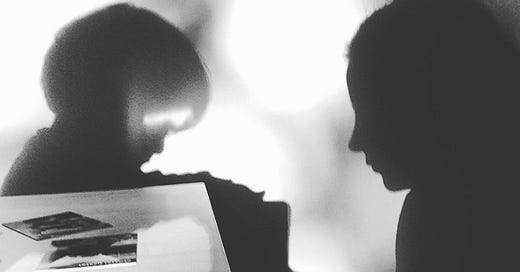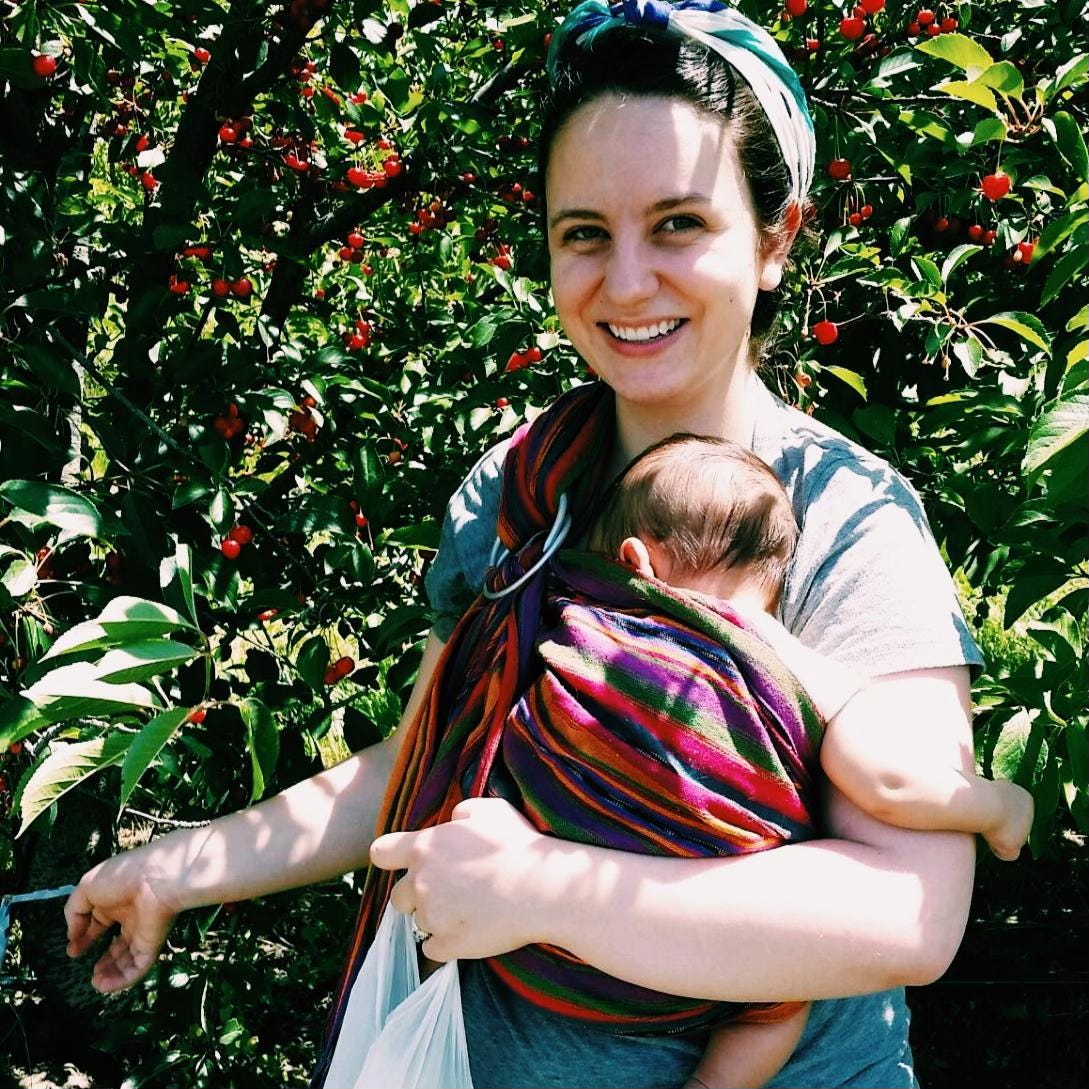Considering Food Scarcity’s Closeness
And my past shame about being on a government assistance nutrition program
This is an introduction to my investigation of food scarcity. Expect essays on hunger and the US mythology of abundance and interviews about how people navigate scarcity and practice self and/or community reliance in their local food system.
When did you first notice the scarcity of food? How long were you able to think of food as just there?
I was twenty-one, a new mom staying at home and freelancing making $15/article, while my husband was in grad school making minimum wage. Money was scarce and many food items cost more in our rural town than what I was used to from living in Phoenix. We teetered. Luckily it was summer 2014. The Affordable Care Act (ACA) went into full effect on January 1 of that year and it was an era of hope as a young liberal. I went on Medicaid while pregnant (the spouse and child insurance offered by the school was entirely unaffordable) and then applied for WIC (Special Supplemental Nutrition Program for Women, Infants, and Children) after I gave birth to my son. This was the first time I’d relied on a government program and I felt ashamed to need it. I did have a support system in addition to Michael, my parents and in-laws, but I didn’t tell any of them about going on WIC. I glossed over the fact and let them believe that Michael and I made enough money to cover our needs.
My opinions about government assistance were shaped by a long history of family military service and poverty, and my parents pulling themselves out of their birth situations through education and self-help. My grandfather was a union pipefitter, but union assistance was better than a handout from the government. The general air of distrust of the government lingered. I’m sure, also, that I don’t have the whole story. I don’t know the full history of what programs may or may not have helped my family before my time.
My personal experience is one of having everything I needed provided by my parents as a child: food, shelter, clothes, nurturing. Looking back, there were distinct stages as my parents moved upward. From birth to eleven, my parents were heavily burdened by graduate degree student loan debt and we ate plainly (only going out to eat for big occasions), we lived in a variety of houses (they owned one for a few years, rented a lot, then bought a trailer), and we bought new clothes only at Easter and Christmas (which I have to thank for my love of thrifting). Starting when I was twelve, my parents’ upward trajectory increased. We moved to Phoenix, my dad’s jobs steadied, they bought a house (then a second to rent out), we got cable TV for the first time, and my parents became Costco members. We were still an ingredient house, but we started eating more meat and processed foods. Through it all my mom stayed home with me and my brothers, running the house, homeschooling us, and feeding us very well. We shared a strong sense of achievement and resourcefulness. My brothers and I were explicitly aware that our parents were hard at work healing generational dysfunction (namely alcoholism) and providing for us better than they received.
My parents paid for my college education because they didn’t want me to carry the weight of debt like they had. I worked the whole time I went to school, but I also was able to do some unpaid internships (that were required to graduate and provided me with a lot of experience). I bought the food I wanted from the money I made and from the debit card I had that was connected to my dad’s bank account. I was overly cautious and timid with his money, never knowing how much I was allowed to spend, but if it was food I didn't feel guilty. My parents provided incredibly generously and I’m very aware of how much not having student loans impacts my life. And, I was anxious, uninformed, and avoidant around money – as well as having a warped sense of who should provide for whom. Not having student loans was directly linked in my parents' eyes to me being able to stay home with my children when I had them and rely on my husband to be a sole provider. At the time I bought in fully to this idea.
That is the context I stood in as a young mother who wanted to stay home, wanted and needed to work, had a wonderful husband who was providing – and it all wasn’t adding up to enough money to put enough food on the table. I applied for WIC knowing I needed it and also feeling intense shame. I wasn’t used to being in “the system” (but was a vocal supporter of government assistance programs for other people) and everything in me railed against it.
The shame I felt is bigger than my family’s history and opinions. My country trusts in God, not the government. The Great Seal depicts an eagle, alone, clutching an olive branch and arrows symbolizing that the country has a “strong desire for peace, but will always be ready for war." A war for personal gain that’s won by not needing help from anyone. After the era of liberal hope, there is the crisis of today. Congress cut Medicaid and the Supplemental Nutrition Assistance Program (SNAP) which “could make it significantly harder for families to access WIC benefits.” There’s talk about removing “unhealthy” foods from nutrition programs, which, after listening to talk about pros and cons, only makes me imagine how infantilized I’d feel if I was still on WIC and couldn’t buy a soda if I wanted one. Poverty is officially suspect and shameful, per the US government. “Just work harder and then you’ll be better than those who need help,” could be a real slogan.
After about two years, I couldn’t bring myself to place the WIC approved foods on the conveyor belt and face the sighs and annoyance of the grocery store clerks anymore. Also, two years into parenting, I was making slightly more money and my husband had a summer job to cover the months that graduate student stipends ignored. At the time I had no major epiphanies about my shame and was ready to be done receiving assistance that felt like it negated my credibility as an adult.
It's been over a decade since I got approved for WIC, and it’s only in the last few years that I’ve taken a hard look at my shame around the whole thing. It took me writing about food, researching the food system, and personal epiphanies and crises to see the inherent cruelty in a food system where people go hungry and are shamed for seeking and receiving help. Even though as a child and young adult I was insulated from food scarcity by money, as long as people depend on the industrial food system, scarcity is right around the corner. I say this not to fearmonger, although it is scary, but to encourage resistance to the idea that food is a privilege. Food is a fundamental human right.
Goodbye Substack app, hello Discord
I’m moving the paid subscriber chat to TOMATO TOMATO, a server that
started and is generously using as a place for food / culture / ecology thinking and conversation. If you’ve never used the Substack chat feature, I’d encourage you to give Discord a try. Below the paywall you’ll find the link to join us on Discord — we begin in The Good Enough Weekly channel at noon PST/3pm EST and I hope to see you there!Keep reading with a 7-day free trial
Subscribe to The Good Enough Weekly by Devin K Pope to keep reading this post and get 7 days of free access to the full post archives.





